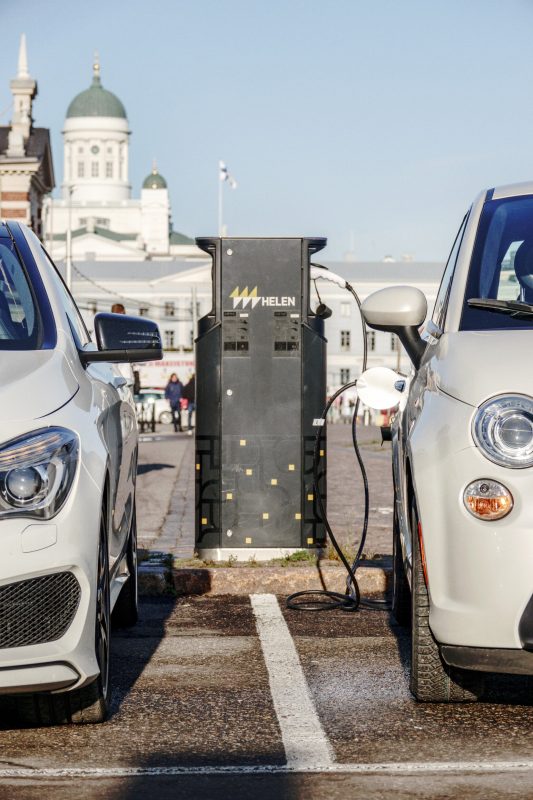Electric cars
According to the estimates done by the City of Helsinki, 30 per cent of the city’s car fleet will be electric by 2030. The import of internal combustion engine cars into the EU market will be prohibited from 2035 onwards. Emissions from electric cars fall below the emissions of the average combustion engine car during the second year of operation, even if the emissions from car manufacturing are also taken into account. At the moment, electricity is the only scalable propulsion solution for reducing CO2emissions from transport.
For this reason, the City of Helsinki encourages residents who need a car in their everyday life to choose an electric vehicle. The city provides support, for example, by lowering the parking prices for low-emission vehicles and by offering free advice on the construction of charging stations for housing companies. The charging network in public areas will also be strongly enhanced to make it easier for residents to charge their electric cars.
By the end of 2023, the City of Helsinki has built 223 charging points in public areas. The number of charging points will increase significantly in the coming years. The aim is to offer home charging, i.e. slower charging, as well as high-power fast charging stations comprehensively around the city. When the heavy vehicles are electrified, the charging network will be increased to meet the needs of heavy traffic.
The city is committed to complying with the Act on Clean Vehicles. Accordingly, the city purchases emission-free cars and vans, trucks and work machines for its own use. For these purposes, the city will purchase charging infrastructure for its locations.
